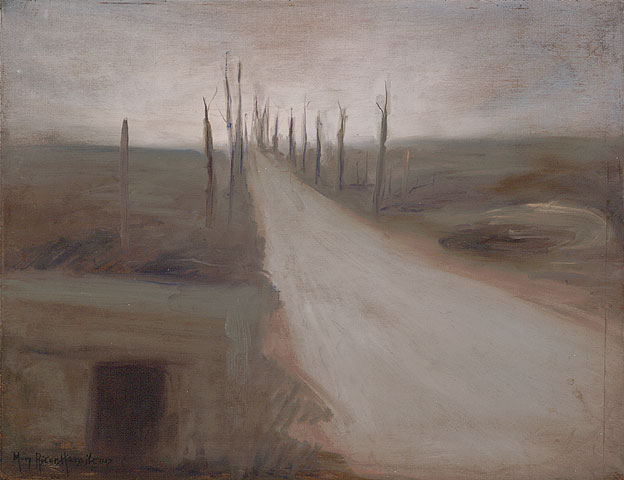The war to end all wars began August 4, 1914 when the British Empire,
including Canada, declared war on Germany. By the end of 1916, over 400,
000 Canadians had voluntarily enlisted to fight in Europe.
Their most important victory came with the capture of Vimy
Ridge in 1917.The Vimy Ridge battle is regarded by many as a turning
point for all Canadians - a move away from the long, historic domination
of the British Empire toward self-determination.

The Sadness of the Somme-Mary
Riter Hamilton
Canadians were also involved in major battles at Somme, where more
than 24,000 Canadians lost their lives in the summer and fall of 1916,
Passchendaele
and Ypres
where one of history's most memorable
poems
was composed by Major John McCrae, a surgeon with the Canadian forces.
There are 61,000 Canadians in the war cemeteries
in Europe - a reminder of Canada's contribution to the war. |
